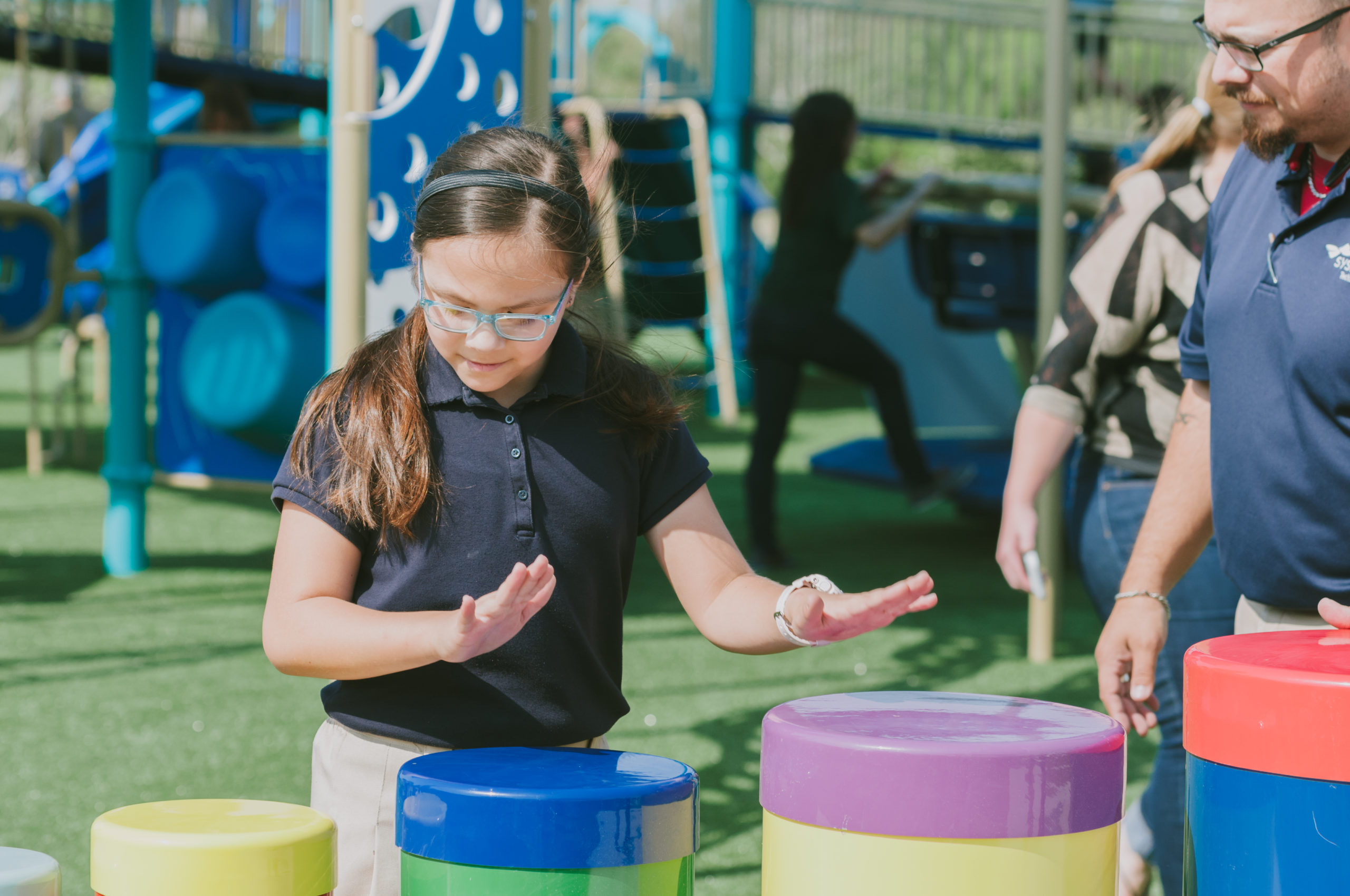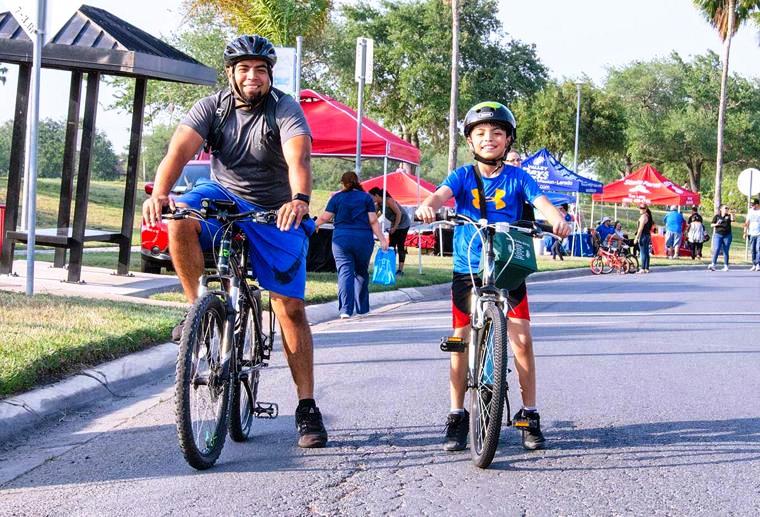2020 All-America City Finalist – Harlingen, TX
Harlingen recognizes that the complex needs of its growing community can only be managed by inclusive, equitable involvement at all levels of decision-making. Civic collaboration is not one-sided but arrives at solutions through extensive engagement at all levels of the project process, from visioning, to planning, to implementation, to evaluation.
One Harlingen means a united community of residents pursuing a better quality of life. This is accomplished through improved parks based on civic engagement, through the Mayor’s Wellness Council promoting wellness and health, and through improved access to college and technical training for young people.
Creating Inclusive and Accessible Community Parks
The City of Harlingen recognizes that parks, trails, and recreational offerings in a city of its size play a critical role in defining quality of life and can be models of equity and access.
The Harlingen community recognized that designing an accessible and truly inclusive playground goes far beyond meeting the basic requirements of the Americans with Disabilities Act (ADA). To be inclusive in the true sense of the word, playgrounds would need to be designed so that all children, regardless of their level of gross motor ability or developmental level, could access most, if not all, of the available equipment.
After an initial attempt at building an accessible playground fell short, with limitations to those in wheelchairs, Harlingen expanded their engagement process to seek the expertise of various stakeholders, including Miracle Kids of South Texas. Founded by Harlingen parents of children with special needs, Miracle Kids of South Texas, was a key organizational partner to the visioning and planning process as well as providing expert guidance on operational features such as restrooms and adaptive sports fields. 
Several parks were identified for renovation, with concepts including an all-inclusive playground, accessible restrooms, an adaptive baseball field, lighted trails, additional parking, an amphitheater, pavilions, new lighted basketball courts, a courtyard, and a children’s discovery center. Since the opening of the new playgrounds, each park location has seen an increase in visitors. The park designs continue to receive rave reviews from children with special needs and their parents, as well as the general community.
Healthy Eating and Exercising in Harlingen
Alarmed by evidence of poor community health outcomes, a group of community leaders established the Harlingen Mayor’s Wellness Council to promote a healthy lifestyle and address some of the biggest health disparities faced by residents.
The council includes representatives from Harlingen’s non-profit organizations, local health and fitness businesses, the school district, doctors, hospitals, health clinics, health insurance providers, local universities and colleges, for-profit corporations, as well as community members. Through extensive community input, the Council created seven collaborative workgroups to improve the health and wellness of Harlingen residents.
 As part of its strategy, the council collaborated with local groups to establish Viva Streets, an ongoing community project that closes streets off to cars and transforms them into places where people of all ages and backgrounds can congregate to improve their health. Several blocks in downtown Harlingen close to traffic and the streets open for residents of all ages to enjoy the space for walking, running, cycling, and any other physical activity. The event includes a 5k walk/race, exercise demonstrations, a social bike ride, and informational booths where a variety of health and wellness organizations provide information and support efforts to improve health, fitness, and wellness.
As part of its strategy, the council collaborated with local groups to establish Viva Streets, an ongoing community project that closes streets off to cars and transforms them into places where people of all ages and backgrounds can congregate to improve their health. Several blocks in downtown Harlingen close to traffic and the streets open for residents of all ages to enjoy the space for walking, running, cycling, and any other physical activity. The event includes a 5k walk/race, exercise demonstrations, a social bike ride, and informational booths where a variety of health and wellness organizations provide information and support efforts to improve health, fitness, and wellness.
A result of community input gathered during Viva Streets, the Harlingen Social Bike Ride group was established to encourage safe cycling as a way to stay physically active. The group hosts free monthly bike rides that use different community assets such as trails and parks, local businesses, and police department escorts.
Lifelong and Quality Education in Harlingen
Like many low-income border communities, Harlingen has historically faced the challenge of ensuring that its students obtain a high-quality education. The latest U.S. Census data reveals that only 18% of Harlingen adults have a college degree and only 75% have obtained a high school diploma or GED.
School leaders, along with members of the community, local colleges and universities, and city leaders decided that a plan of action was needed to enhance job training to provide opportunities for students in different trades, professions, jobs, and careers.
In 2018-2019, the Harlingen Consolidated Independent School District (HCISD) debuted its  STEM2 Preparatory Academy, equipping middle school students with skills necessary to meet the demands of the STEM field. In addition, HCISD has partnered with the University of Texas Rio Grande Valley (UTRGV) to build a facility by 2021 that will be home to the new Early College High School. There, students will continue earning their high school diplomas while simultaneously earning university credit hours.
STEM2 Preparatory Academy, equipping middle school students with skills necessary to meet the demands of the STEM field. In addition, HCISD has partnered with the University of Texas Rio Grande Valley (UTRGV) to build a facility by 2021 that will be home to the new Early College High School. There, students will continue earning their high school diplomas while simultaneously earning university credit hours.
One school students can enroll in after graduation is Texas State Technical College (TSTC) in Harlingen. The Workforce Training and Continuing education program at TSTC has built collaborative partnerships with businesses, industries, service organizations and higher education agencies and works closely with them to help upgrade the skills of their current employees and improve competitiveness in the industry. This training meets the high-tech challenges of today’s global economy.
Harlingen is now equipped to ensure that students learn the proper tools for the workforce, regardless of the field they decide to pursue.
Some Related Posts
Thank You to Our Key Partners



